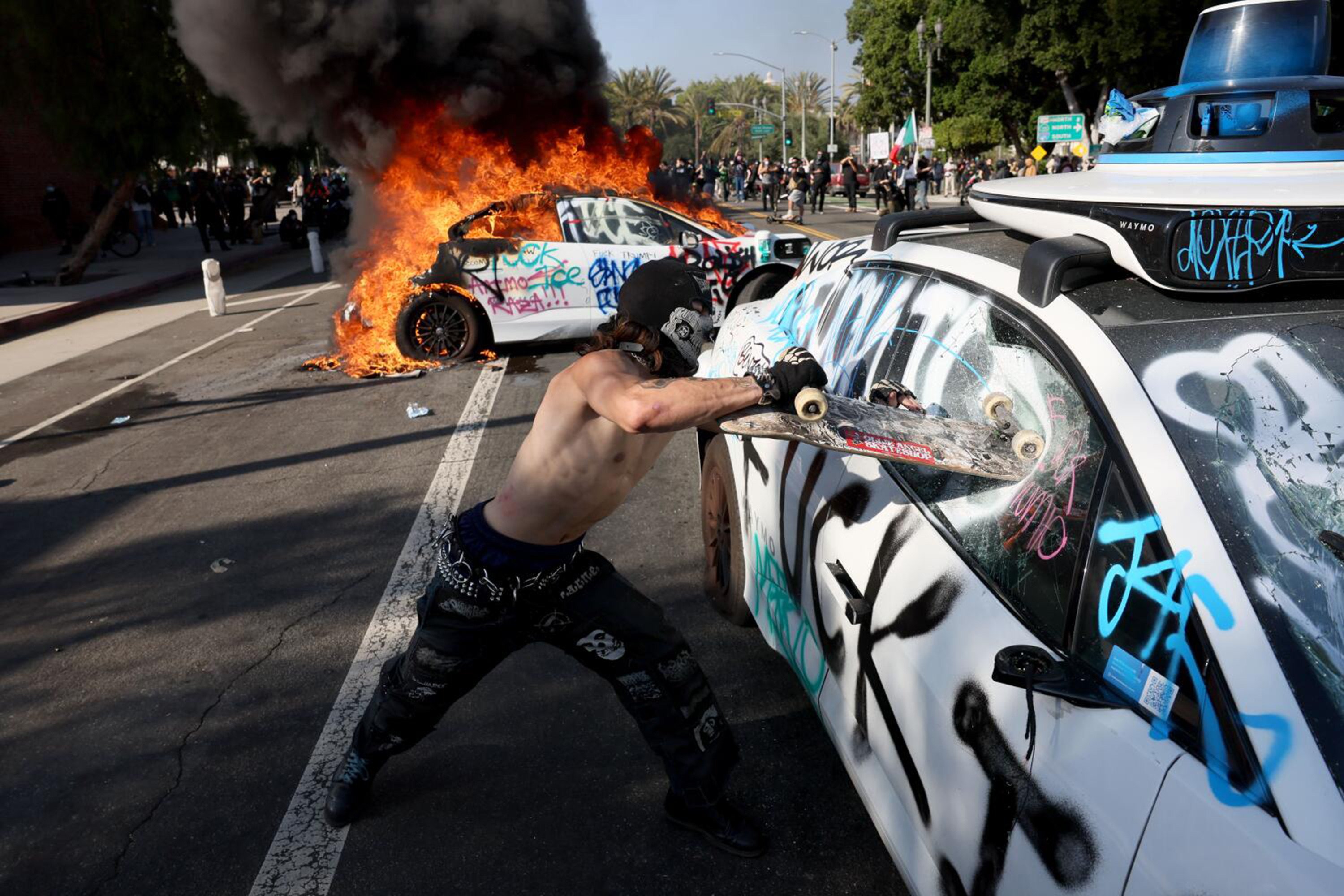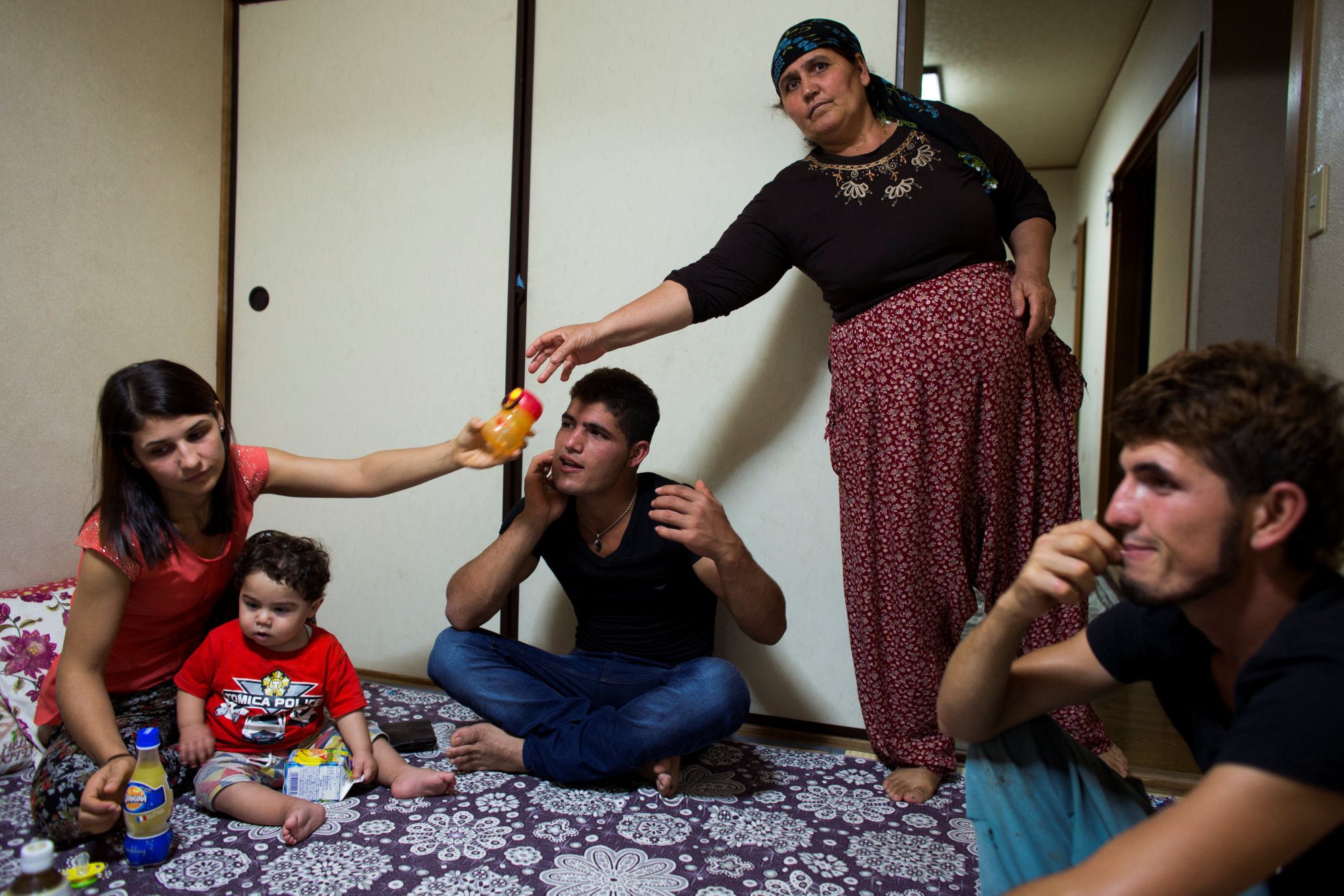In Japan, LA protests are dividing people as much as in the US. Here’s why
While some Japanese agree with President Donald Trump’s crackdown against the protests, others urge Japan to be more receptive to foreigners

US President Donald Trump’s deployment of thousands of military personnel to Los Angeles in response to protesters rallying against his administration’s immigration raids has split public opinion in Japan, where debates have escalated in recent years over an influx of foreigners into the country.
The protests in Los Angeles – now in their third day – have prompted Trump to order around 4,000 National Guard personnel and 700 Marines to the city. Clashes between both sides have led to rubber bullets and flash grenades being used.
California Governor Gavin Newsom has filed a lawsuit against the deployment, calling it unconstitutional, while LA Mayor Karen Bass said the city was being “used for an experiment” in asserting federal authority.
In Japan, where the protests have been widely covered in the press and dissected on social media, reactions have been swift and polarising, mirroring the division among Americans about the unrest.
“The protests started mostly peaceful, as far as I could tell from the news coverage, but have become a series of riots now,” said Ken Kato, a Tokyo-based small business owner, who describes himself as deeply conservative in his outlook.
“I’ve seen footage of people throwing bricks and stones at police cars, and that is completely unacceptable to a Japanese person,” he said.
He told This Week in Asia that the level of force used by the US security personnel was appropriate. “This sort of behaviour [by the protesters] is not acceptable,” he added.
Kato also referred to the immigration situation in Japan, particularly the large presence of Kurdish people in the country.
Many Kurds are based in the Saitama prefecture, north of Tokyo, where there have been reports of friction between them and residents, their supposed refusal to abide by Japanese laws and customs, and a rise in crime in the area.
“I am concerned that what we are seeing in the US could happen here soon. Foreign people who want to live in Japan have to follow the law or they cannot stay here,” Kato said.
Online users commenting on news websites agreed on the need for foreigners living in Japan to integrate themselves well into Japanese society.
“What is happening in Los Angeles should be something that concerns Japan as well,” a user said on a BBC news site. “If the same thing happened in Saitama or Kawasaki, where immigration is now a hot topic, it would be very serious.”
Another user said: “I fear things will get even more heated from now on. The possibility of the US becoming completely divided has become more real, and Japan cannot afford to sit back and watch.”
But others in Japan are taking the opposite view, warning that Trump’s approach risks undermining civil liberties and democratic norms.

“I do not think that Japanese are getting the full story from the media and they do not understand what it means for a government to put armed troops on the streets of a major city to face protesters who were previously peaceful and acting legally,” said Izumi Tsuji, a professor of the sociology of culture at Tokyo’s Chuo University.
“This has all escalated so quickly and, to me, it cannot be correct to use military forces against civilians,” he said.
A post linked to a Jiji Press story said: “Trump always makes a big fuss about war, civil war, invasion, exploitation and uses that to justify his authoritarian methods – but this is no different from Russia or China.”
Another suggested that Trump was provoking the riots to “punish” Newsom, who is being tipped by many as a presidential candidate in the next election, and cover up the recent bad news for his administration, ranging from his failure to stop the war in Ukraine, a delay in the budget bill and his fallout with former “first buddy” and Tesla tycoon Elon Musk.
The protests in Los Angeles had underscored the need for Japan to change its attitude towards migration, Tsuji said.
“I’m opposed to what Trump is doing, and our society in Japan needs to be more open to immigrants, and that multicultural societies are just inevitable,” he added.